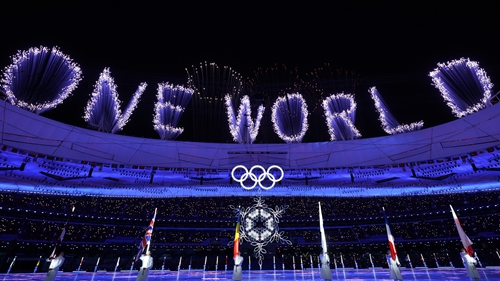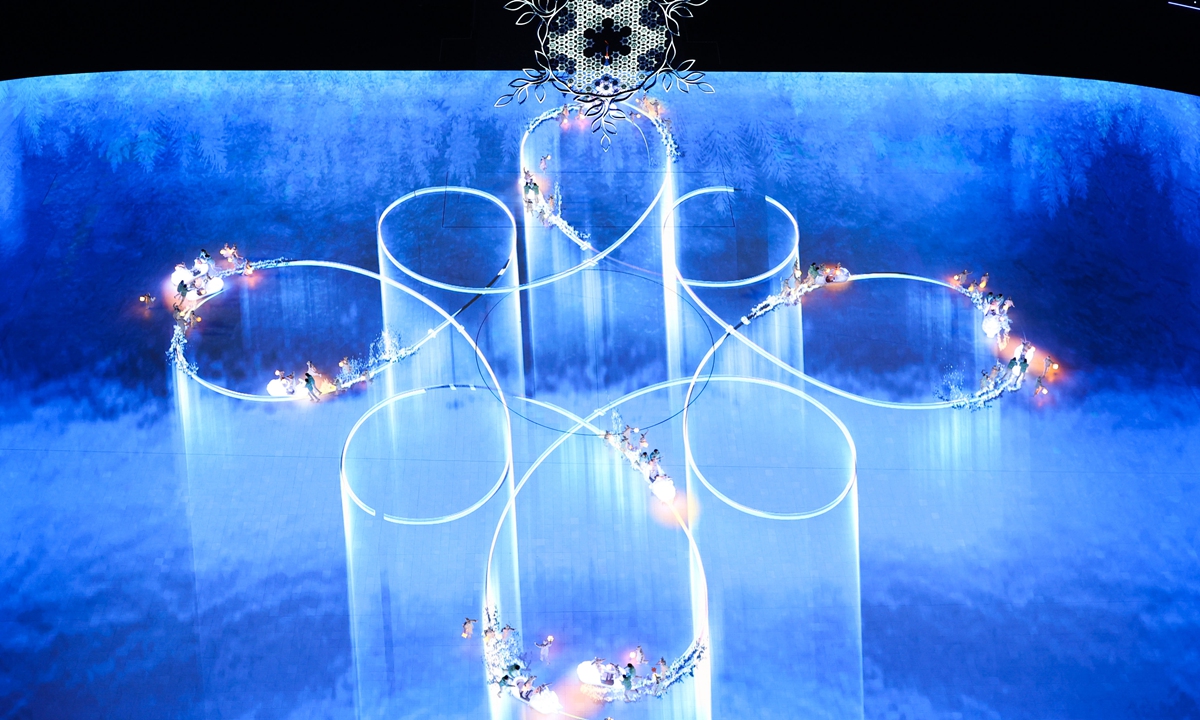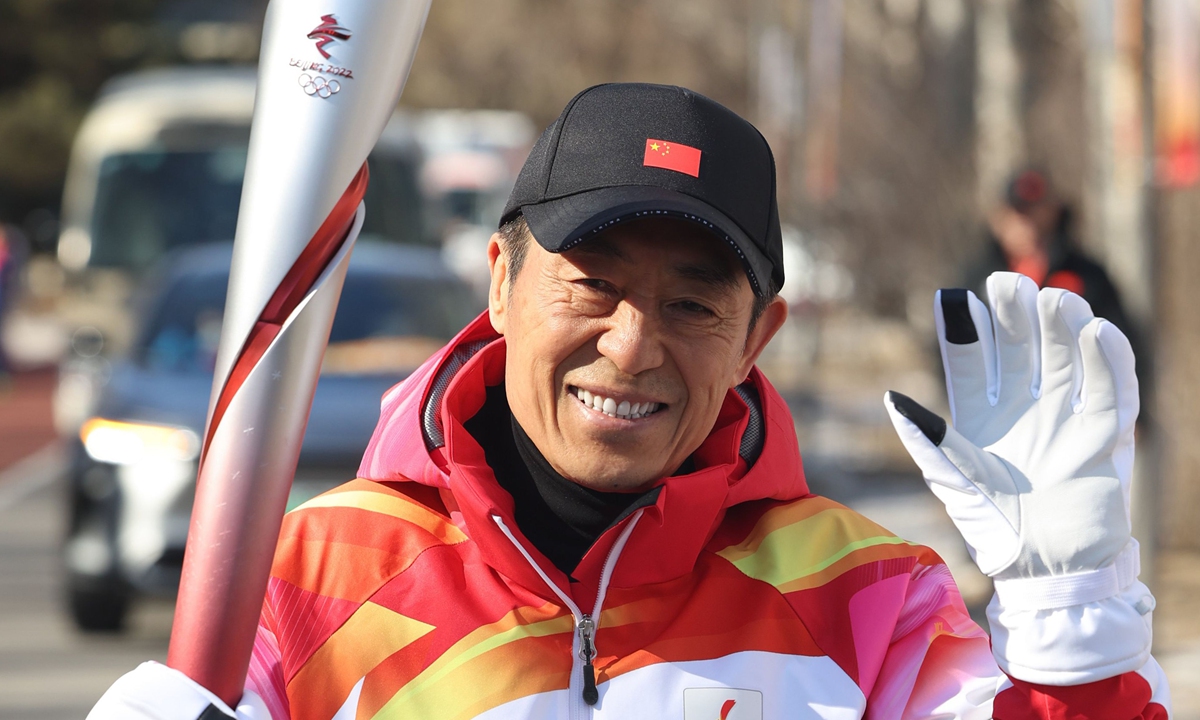
The closing ceremony of the Beijing 2022 Winter Games on February 20, 2022 Photo: IC

The closing ceremony of the Beijing 2022 Winter Games on February 20, 2022 Photo: IC

Director Zhang Yimou Photo: IC
Chinese knots, lanterns, and "willow twigs" symbolizing farewell… Zhang Yimou, the only filmmaker to direct opening and closing ceremonies for both the Summer and Winter Olympics, once again proved his incredible talent on Sunday night with an amazing closing ceremony for the Beijing 2022 Olympic Winter Games. Without a doubt, he has set an exceptionally high bar for future directors.
The spectacular ceremonies have not only deeply stunned the world, but also amazed Chinese audiences, who gave the director the highest tribute with the comment "Zhang Yimou really understands China."
However, the 72-year-old director remains very modest, saying that he feels very fortunate to be the only person to direct the ceremonies for both Beijing Olympics. He added that this honor is mainly thanks to the rise of China and the booming popularity of Chinese culture around the world.
If the 2008 Beijing Games opened a window for the world to learn about China, the 2022 Beijing Games have shown that China has really "stood up."
"You can make many movies in your life, but you only have one chance in your life to direct an Olympic Games in your life," Zhang once said in 2008.
In 2008, Zhang did his best to try and tell the entire story of China's 5,000 years of civilization to the world.
However, the way Chinese people view their country's place in the world has also undergone a profound transformation in the intervening 14 years.
"In 2008, the Olympics was a brilliant stage and chance for our country to show ourselves… [But] it's different now. China's status in the world, the image of the Chinese, and the rise of our national status, everything is totally different now," he told the Xinhua News Agency.
Zhang said that although undertaking the responsibility for the Winter Games ceremonies was still stressful, he was more "confident to introduce more Chinese romance to the world.
Echoes through time and spaceMany Chinese elements in the closing ceremony on Sunday echoed the opening ceremony. The giant snowflake at the opening ceremony turned into a Chinese knot representing connection and togetherness, while the 24 Solar Terms echoed the 12 Chinese zodiac signs.
The symbolic "willow twig" farewell at the closing ceremony was also one of the most eye-catching details that won the hearts of viewers.
"The earliest relevant record of the 'willow twig' allusion can be found in The Book of Songs. The nostalgic sense conveyed by the willow twig later transformed into a symbol of farewell," Jiang Yufang, a Chinese culture expert in Beijing, told the Global Times on Monday.
"The reason why people can understand Zhang's use of cultural symbols is because they are pure and simple, but they are often attached to profound cultural stories. It is important when implementing cultural references that there are not too many 'cultural discounts,'" Zhang Yiwu, a Chinese culture professor at Peking University, told the Global Times on Monday.
A tribute to the past 14 years At the closing ceremony, the moment when the five shining Olympic rings and beautiful snowflakes intertwined at a distance took viewers back to the 2008 sports feast.
"I hope that the moment when time intersects is very moving and amazing! We can have good memories about the dual Olympics," Zhang explained.
"We pay tribute to the 'Dual Olympic City' and the 'Dual Olympic Stadium.' But it is not simply a tribute, but it represents the past decade. I hope that at some point, we can look back at ourselves and the road our country has traveled," he added.
"Why Zhang Yimou has become the most highly watched director again is because us and our growing sense of traditional Chinese culture. From 2008 to 2022, our faith in our own culture has increased, which allows us to understand what he created," Shi Wenxue, a film critic in Beijing, told the Global Times.
"When it comes to cultural confidence, it is not a radicalization or comparison of 'I am stronger than you,' but a peaceful display of self based on cultural pride. No matter what the human yearning for a better life depends on, its inner sincerity, enthusiasm and depth transcend national boundaries, and so does the Olympic spirit," said Jiang.






